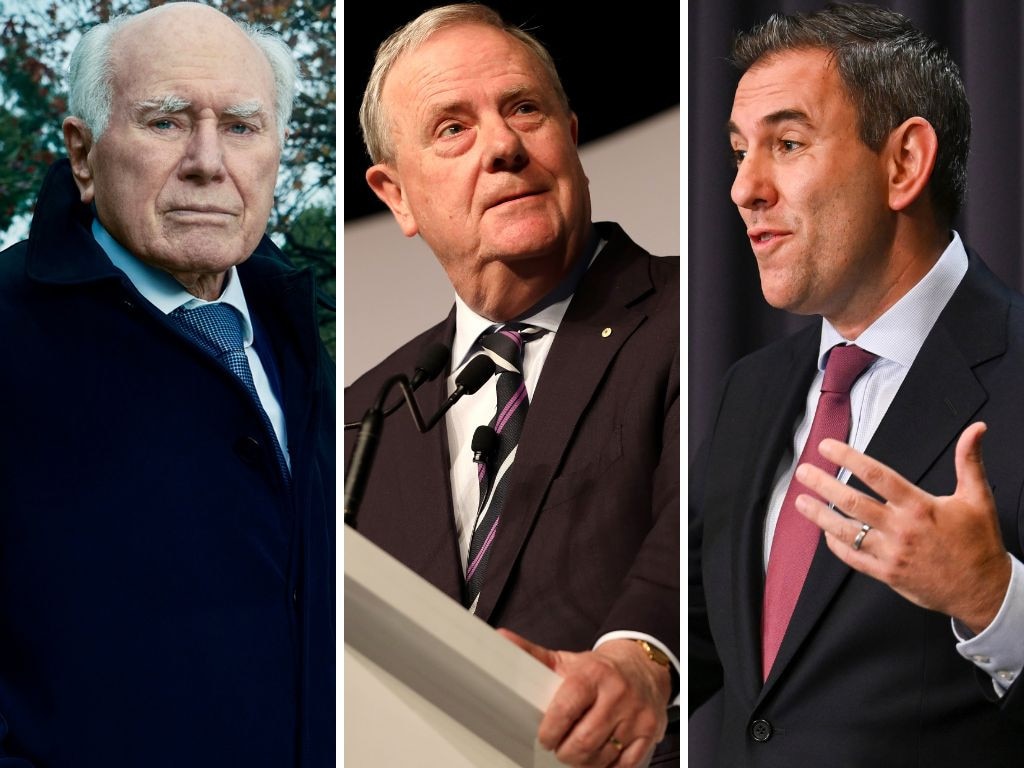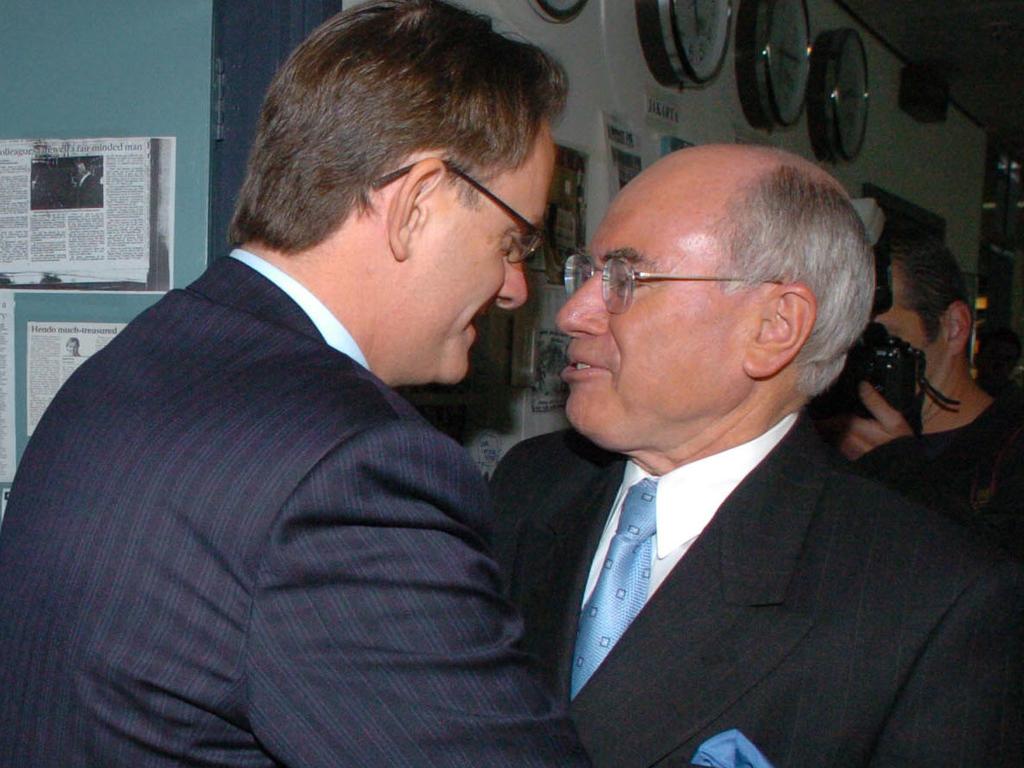2004 Cabinet Papers: Consolidation and Future Fund the focus for Peter Costello’s economic management
Peter Costello reveals Treasury opposed the creation of the Future Fund, which is now worth $230bn.
For Peter Costello, 2004 was about fiscal consolidation, delivering another budget surplus and paying down government debt, while also looking ahead with the announcement of the Future Fund, which he reveals was opposed by Treasury.
The Future Fund, announced during the 2004 election campaign, was to fund the superannuation liability for public servants with future budget surpluses rather than deposit them at the Reserve Bank and earn interest.
“That was not a very good investment – leaving it at call at the Reserve Bank,” Mr Costello told The Australian.
“I wanted to actually do something with it and set up an investment fund. While we had no net debt, any surplus could go into this investment fund.
“The Future Fund was opposed by the Treasury because Western countries don’t have sovereign wealth funds – the Americans don’t, the British don’t, the French don’t. There’s just no experience.
“Their second objection was that politicians will get control of it and sooner or later they’ll spend it. That’s a fair point by the way. It’s basically a sovereign wealth fund owned by the government and it can be invested anywhere in the world.
“Eventually we had a bunch of surpluses and a bit of Telstra privatisation, and we put $60bn into it. It’s worth $230bn today. If we had just put the money at the Reserve Bank, it wouldn’t exist anymore. It would have been drawn down by subsequent budget deficits.”
The Coalition’s final budget outcome for 2004-05 showed an underlying cash surplus of $13.5bn (1.5 per cent of GDP), the seventh of 10 budget surpluses Mr Costello would deliver between 1996 and 2007. Net debt fell to $11.5bn (1.3 per cent of GDP), the lowest in 28 years.
But today the former treasurer is concerned successive Labor and Coalition governments have not returned the budget to surplus, and kept it there, after necessary stimulus in response to the financial crisis in 2008 and the pandemic in 2020.
“What’s happening in Australia is that tax per capita is rising and spending per capita is rising even faster. We are progressing to a higher tax, higher spend, higher debt country and this is at the same time that we are becoming a less-productive country,” Mr Costello explained.
“I’m afraid it hasn’t been a good story overall, the last 20 years, and it’s not going to be a good story over the next 10. Add into this we are ageing which is also going to be a handbrake on productivity, and adding to this what I think is going to be an enormous call for spending on defence.”
The consolidation in the nation’s financial position came despite it being an election year and a budget full of sweeteners for voters aimed at addressing the so-called “barbecue stopper” issue of balancing work and family commitments.
Cabinet papers show the Howard government signed off on tax cuts and family assistance payments, maternity payments, funding for childcare plus new grants and subsidies, while keeping the budget in the black.
Rising iron ore prices led to higher company profits and increased tax receipts coupled with lower than expected cash payments. The economy grew with increased business investment, average incomes rose, and unemployment and inflation fell.








To join the conversation, please log in. Don't have an account? Register
Join the conversation, you are commenting as Logout